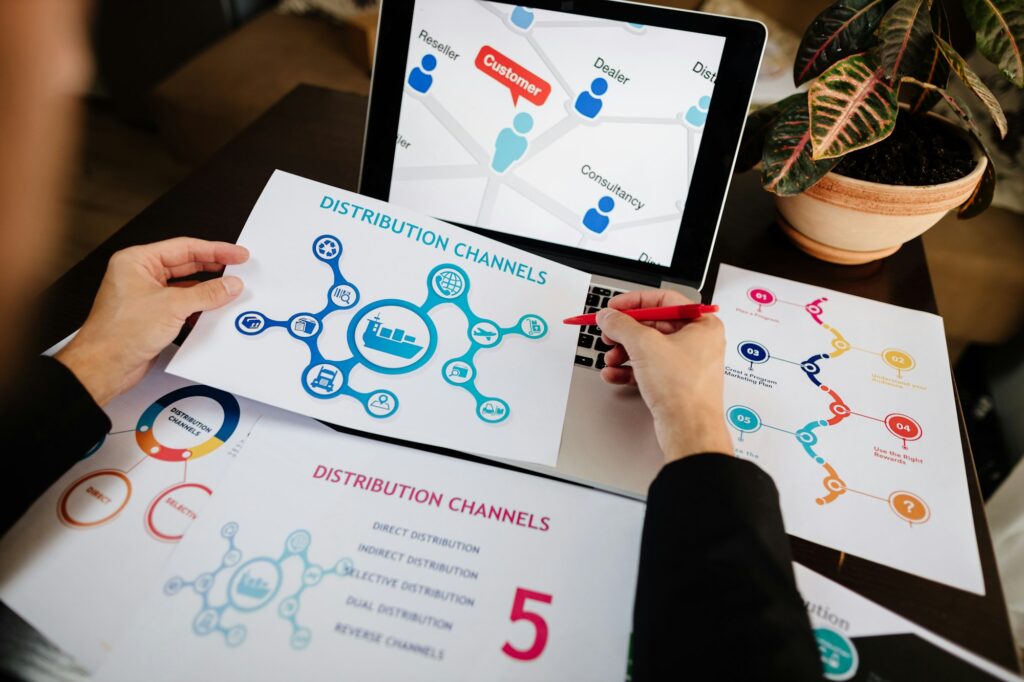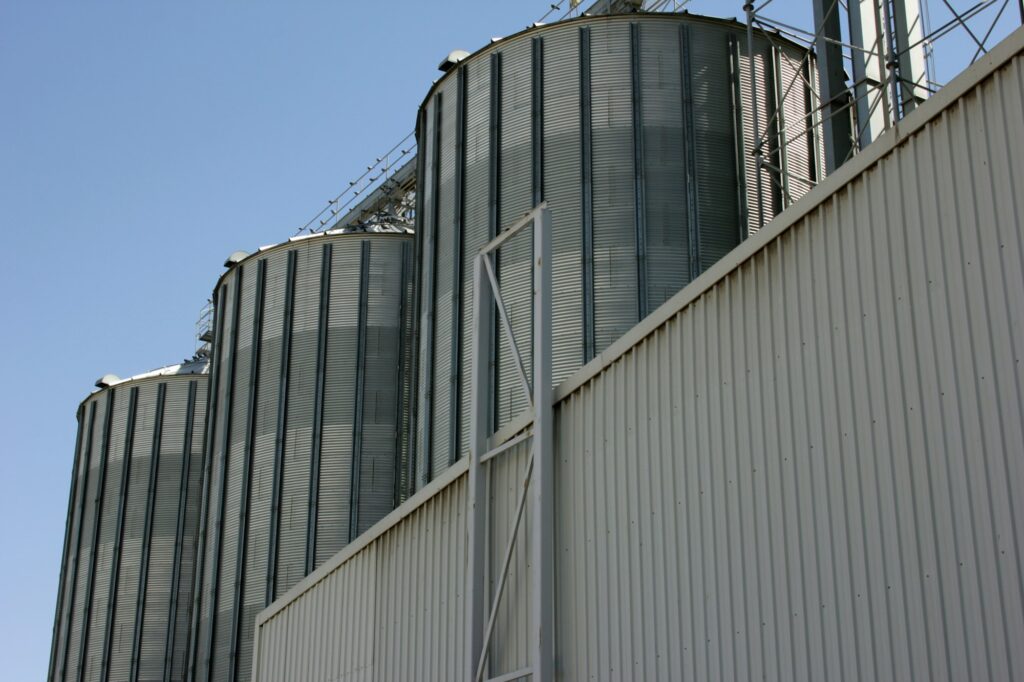
Trading software refers to digital platforms and tools designed to facilitate the buying and selling of financial instruments, such as stocks, currencies, and commodities. These software solutions provide traders with real-time market data, advanced charting tools, and various order execution capabilities, enabling them to analyze market trends and execute trades efficiently. Many trading platforms also offer automated trading features, where algorithms can execute trades based on pre-defined criteria, thereby minimizing the need for constant manual intervention. By integrating features like risk management tools, news feeds, and analytical indicators, trading software has become essential for both novice and professional traders aiming to enhance their trading strategies and achieve better outcomes in the financial markets.
An Accounting & Inventory Management System is a comprehensive solution designed to streamline financial and inventory operations within a business. This integrated system enables real-time tracking of inventory levels, sales, and purchases, ensuring that stock levels are optimized and financial records are accurate. By automating key processes such as order management, invoicing, and financial reporting, the system reduces manual errors and increases operational efficiency. Additionally, it provides valuable insights through detailed analytics and reporting features, helping businesses make informed decisions and maintain compliance with financial regulations. Overall, an Accounting & Inventory Management System is essential for enhancing productivity, improving financial accuracy, and supporting strategic growth.


A Departmental Store POS (Point of Sale) system is a comprehensive solution designed to streamline retail operations, enhance customer service, and improve overall efficiency. It integrates various functions such as sales transactions, inventory management, customer relationship management, and financial reporting into a single, user-friendly platform. By automating routine tasks, a POS system minimizes human error, reduces checkout times, and provides real-time data on stock levels and sales performance. This enables store managers to make informed decisions, optimize product placement, and tailor marketing efforts to customer preferences. Additionally, advanced POS systems offer features like mobile compatibility, loyalty programs, and seamless integration with e-commerce platforms, ensuring a cohesive shopping experience across all channels.
Pharmacy Store Software is an essential tool designed to streamline the operations of modern pharmacies. It offers a comprehensive solution for managing inventory, tracking sales, and ensuring regulatory compliance. By automating routine tasks such as prescription processing, inventory replenishment, and customer management, the software allows pharmacists to focus more on patient care. Features like real-time inventory updates, automatic reorder alerts, and integrated point-of-sale systems enhance efficiency and reduce the likelihood of stockouts or overstocking. Additionally, the software often includes modules for managing insurance claims, generating detailed reports, and maintaining accurate records, which are crucial for audit purposes and improving overall business operations. With user-friendly interfaces and robust security measures, Pharmacy Store Software not only improves operational efficiency but also ensures data security and enhances customer satisfaction.


A Restaurant Management System (RMS) is a comprehensive software solution designed to streamline and enhance the operations of a restaurant. It integrates various functions such as order processing, inventory management, employee scheduling, and customer relationship management into a unified platform. With an RMS, restaurants can efficiently handle reservations, manage tables, track sales, and generate detailed reports for business analysis. This system also supports point-of-sale (POS) operations, ensuring accurate and swift transactions. By automating routine tasks, an RMS improves service speed, reduces human errors, and enhances overall customer satisfaction, making it an indispensable tool for modern restaurant management.
A Distribution Management System (DMS) is a comprehensive suite of software applications designed to optimize the monitoring, control, and management of electrical power distribution networks. It enhances the reliability, efficiency, and safety of electricity delivery by providing real-time data, analytics, and automation capabilities. DMS enables utility companies to detect and respond to outages swiftly, manage distributed energy resources like solar panels and battery storage, and optimize the flow of electricity through the grid to minimize losses and ensure balanced load distribution. By integrating advanced technologies such as smart meters, sensors, and communication networks, a DMS supports proactive maintenance, improves customer service, and facilitates the integration of renewable energy sources, thereby playing a crucial role in modernizing and fortifying power distribution infrastructures.


A Wholesale Management System (WMS) is a comprehensive software solution designed to streamline and optimize the various processes involved in wholesale distribution. It facilitates efficient inventory management, order processing, customer relationship management, and supply chain operations. By integrating these critical functions into a single platform, a WMS enhances operational efficiency, reduces errors, and provides real-time data insights, enabling businesses to make informed decisions. Additionally, it supports scalability, allowing businesses to grow without compromising on service quality or operational control. With features like automated reordering, advanced reporting, and seamless integration with other business systems, a Wholesale Management System is indispensable for wholesalers aiming to maintain a competitive edge in today’s fast-paced market.
School management software is a comprehensive digital solution designed to streamline and automate various administrative and academic tasks within educational institutions. This software integrates functionalities such as attendance tracking, grade management, timetable scheduling, fee collection, and communication channels between teachers, students, and parents. By centralizing data and operations, it enhances efficiency, reduces paperwork, and minimizes the chances of human error. Moreover, it provides real-time insights and analytics, aiding in informed decision-making and improving overall school management. The software also fosters better engagement and collaboration among all stakeholders, ultimately contributing to a more organized and effective educational environment.


The Vegetable Market Software is a revolutionary tool designed to streamline the operations of vegetable markets, enhancing efficiency and customer satisfaction. This software offers a comprehensive solution for managing inventory, sales, and customer relationships. With its user-friendly interface, vendors can easily input and track their stock, monitor prices, and analyze trends. Customers benefit from improved transparency, as they can access real-time information on available produce and prices. Additionally, the software facilitates seamless transactions, whether through traditional cash payments or modern digital methods. By automating routine tasks and providing valuable insights, the Vegetable Market Software empowers vendors to optimize their business practices and adapt to evolving market demands.

A real estate management system is a comprehensive platform designed to streamline the processes involved in the management of real estate properties. It serves as a centralized hub for property owners, managers, and tenants, facilitating efficient communication, financial management, and property maintenance. Through features such as online rent payment portals, maintenance request tracking, and lease management tools, this system enhances transparency and accountability while reducing administrative burdens. By leveraging technology, real estate management systems empower stakeholders to make informed decisions, optimize occupancy rates, and maximize the profitability of their real estate investments.
Human Resource Management (HRM) is the strategic approach to managing an organization’s most valuable asset: its people. It encompasses a wide range of activities aimed at maximizing employee performance and ensuring the organization achieves its objectives. From recruitment and selection to training and development, HRM plays a crucial role in creating a productive and harmonious work environment. By fostering employee engagement, addressing workplace issues, and implementing effective policies and procedures, HRM contributes to the overall success and sustainability of the organization. Moreover, in today’s dynamic and competitive business landscape, HRM also focuses on strategic planning, aligning human capital with organizational goals, and adapting to changes in the external environment. In essence, HRM is not just about managing personnel; it’s about nurturing talent, fostering growth, and driving organizational excellence.


Payroll management is a critical aspect of any organization’s operations, encompassing the process of calculating, distributing, and recording employees’ salaries, wages, and bonuses. Effective payroll management ensures that employees are compensated accurately and on time, contributing to their job satisfaction and overall morale. Moreover, it plays a pivotal role in maintaining compliance with labor laws and regulations, as well as accurately accounting for taxes and other deductions. Streamlining payroll processes through automation and integration with HR and accounting systems can enhance efficiency and reduce the likelihood of errors. Ultimately, a well-executed payroll management system not only facilitates smooth financial operations but also fosters trust and transparency between employers and employees.
Effective flour mill management is essential for ensuring the smooth operation and productivity of the facility. It involves overseeing various aspects such as sourcing quality grains, maintaining and operating machinery, managing inventory, and ensuring adherence to safety and hygiene standards. Flour mill managers must possess strong organizational and leadership skills to coordinate activities efficiently, optimize production processes, and address any challenges that may arise. Additionally, staying updated on market trends and customer preferences is crucial for making informed decisions regarding product development and distribution. By implementing robust management practices, flour mills can strive for operational excellence and meet the demands of both consumers and stakeholders in the industry.

Copyright © 2024. code crafters software solutions. All Right Reserved.
